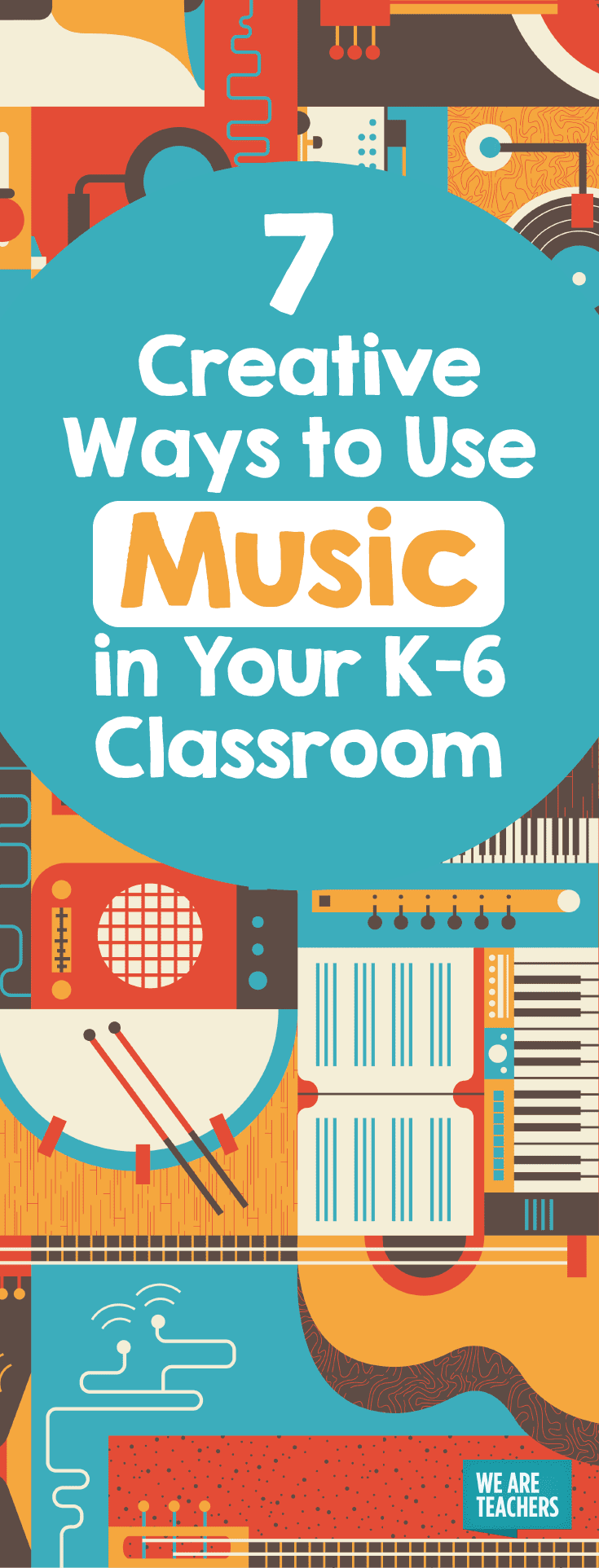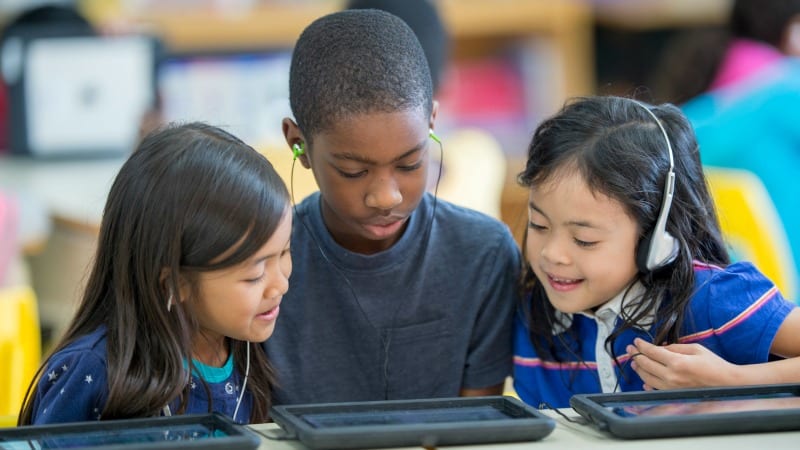One of our very first exposures to music in the classroom is learning our “ABCs.”
For years, teachers have been putting lessons to music to help their students retain and remember key information. I have been teaching third grade for 10 years, and during that time, I’ve incorporated music every day in both my lessons and classroom routines. Here are seven easy ways that you can incorporate music and technology into your classroom to help make your lessons become more engaging and meaningful.
1. Use Theme Songs for Transitions
Train students to move quickly and efficiently to your meeting area, or through stations, using popular theme songs. I particularly like the theme from “Mission Impossible” or “The Magnificent 7.” My students know that when that music is played, they are to bring their white boards and come quietly to the carpet. If they don’t then I will “self-destruct in 10 seconds!”
[embedyt] https://www.youtube.com/watch?v=FCO95esUzBw[/embedyt]
2. Use Music in the Classroom as a Timer
Play the “Jeopardy” theme song while students are solving the problem of the day. Students learn to work quickly and have their solution ready to share in one minute. To make it more fun, ask them to answer in the form of a question!
[embedyt] https://www.youtube.com/watch?v=rTyN-vvFIkE[/embedyt]
3. Teach Multiplication Facts
I recorded myself singing multiplication facts set to familiar songs like Jingle Bells and made them available on my class website. More fun than flashcards, students can practice at home and sing along. I also will sometimes use videos. This is our favorite song (below) for the nines. I promise you it will get stuck in your head and you will be cursing my name at 2 am!
[embedyt] https://www.youtube.com/watch?v=hOpl1FwPlh0[/embedyt]
4. Hook Students on New Content with Tunes
I often use music to help teach new math content, especially more difficult concepts like quadrilaterals and fractions. One of our favorites is Number Rock on YouTube. They have a great selection on every unit topic, including the months of the year calendar song (below).
[embedyt] https://www.youtube.com/watch?v=bZD_BhtiXuU[/embedyt]
5. Take 5: Use Music for Brain Breaks
Students often need brain breaks to dance, sing, and get their wiggles out! Taking a five-minute break can help them regain and retain focus, especially when they are completing independent work. I use Go Noodle for my classroom brain breaks. It’s free and there are multiple ways to shake, wiggle, dance, and sing! They also have many fan favorites from popular movies like “Frozen,” “Minions,” and “The Lego Movie.”
6. Use Calm Music During Writing Time
During our independent writing block, I play a variety of soft music in the background. Students know that when the music is on, they are thinking, brainstorming, and writing. This is also my opportunity to selfishly indulge in my favorite artists, particularly Norah Jones and Diana Krall! Throw in some George Winston and Jim Brickman and my day starts with “Ahhhhh……”
[embedyt] https://www.youtube.com/watch?v=lbjZPFBD6JU[/embedyt]
7. Teach Poetry? Use Flocking
A method of interpretative dance, flocking is a higher-level thinking “follow the leader” activity that teaches students to interpret poetry or song through movement. As they listen to a song, students take turns creating movements which illustrate the song’s meaning, either musically or lyrically. I know it sounds funky, but it is very powerful, and with concrete small chunk instruction, even my thirdr graders could do it! For more information, check out this site.
Music in the classroom … use it! You will be Walking on Sunshine and your students will love it!


